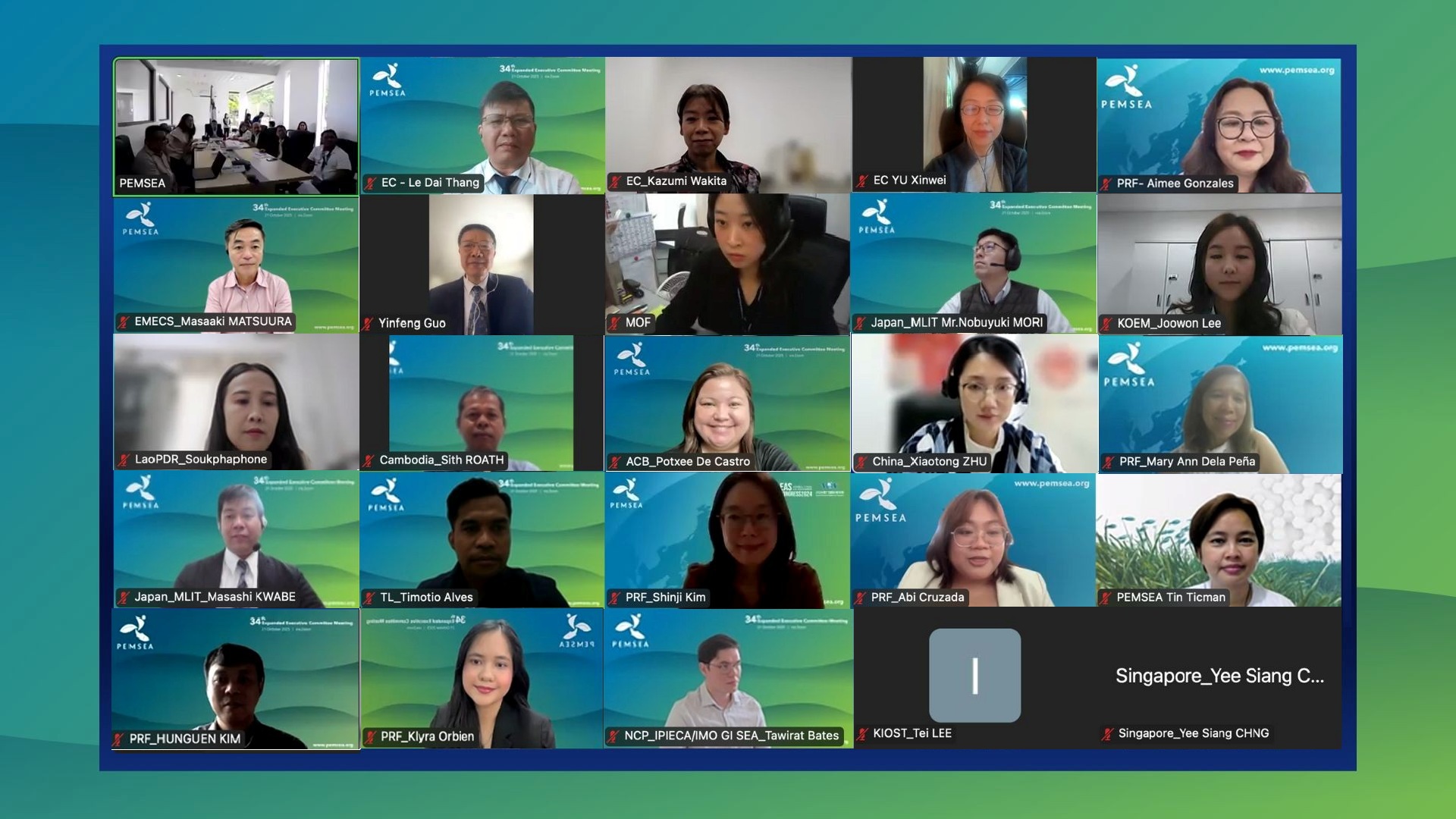Korea welcomes Philippines, Timor-Leste Governments for a Learning Visit on Marine Plastic Recycling
Thursday, 2 May 2024
The Philippines and Timor-Leste government partners visited recycling/upcycling corporation and sites in Korea to learn the latest technologies and best practices of both the Korean Government and the private sector in addressing plastic pollution. Photo by PEMSEA/Jun Dacaymat
Seoul, Republic of Korea – National and local government partners from the Philippines and Timor-Leste visited Seoul from April 22-26 for the first learning exchange program to Korea on marine plastic management. The Republic of Korea, through the Ministry of Oceans and Fisheries (MOF), has been supporting these countries in reducing marine plastics in selected coastal areas since last year through an official development assistance (ODA) project.
“It is widely recognized that while Korea is making efforts to address marine litter issues, solving these challenges without the collective efforts of the international community remains difficult. With this awareness in mind, discussions are underway for a legally binding plastic agreement, emphasizing the necessity of global cooperation in tackling this pressing issue”, said Mr. Sunghee Lee, Director of Marine Conservation Division, MOF.
Plastic, considered one of the greatest inventions in human history,has greatly transformed people’s way of living by improving convenience in various sectors. According to a report released by the Organization for Economic Cooperation and Development in 2022, plastic consumption has quadrupled over the past 30 years. From 2000 to 2019, plastic production has reached 460 million tonnes. However, only 9% of plastic waste is recycled globally while 22% is mismanaged.
“The convenience of plastic now poses a threat to humans and our planet. We witness sea turtles dying because of plastic bags and sharks dying with stomachs full of plastic fragments. Plastic is destroying our marine life and ecosystems,” said Dr. Gi Dong Yeo, Executive Director of Marine Conservation Division of Korea Marine Environment Management Corporation(KOEM).
During the week-long learning exposure, government partners from the Philippines and Timor-Leste visited Seoul Upcycling Plaza, Gyeonggi Upcycle Plaza, Sudokwon Landfill Site Management Corporation, and KOEM. They were introduced to Korea’s marine plastic management policies and innovative solutions for plastic waste collection, segregation, and recycling/upcycling.
Timor-Leste Advisor of Estate Secretary of Fisheries Mr. Rafael Pereira Gonçalves noted that one of their government’s current challenges is the lack of public awareness in managing plastic waste properly. He believes that regional project cooperation such as this can provide insights to national governments to strengthen coordination mechanisms and effectively implement their National Ocean Policy in their country.
There is a need for regional and international cooperation to enhance support from other countries' regulations on the import and export of plastic materials and reduction in the production and consumption of certain plastics,” said Mr. Conrado A. Bravante, Jr. of the Department of Environment and Natural Resources - Philippines.
The six-year ODA project, “Reducing Marine Plastic Litter in the East Asian Seas'' is being implemented in 10 coastal cities and municipalities in the Philippines and Timor-Leste. Through science-based governance, innovative solutions, regular beach data monitoring, and community awareness, the project aims to reduce marine plastic pollution in six LGU sites in the Philippines and four LGU sites in Timor Leste. It is being implemented by Partnerships in Environmental Management for the Seas of East Asia (PEMSEA) in partnership with the Ministry of Ocean and Fisheries of the Republic of Korea.
###
About PEMSEA
Partnerships in Environmental Management for the Seas of East Asia (PEMSEA) is a regional coordinating mechanism for the sustainable development of seas and coast in East Asia. PEMSEA works with 11 countries in the region with a shared vision of a healthy ocean, people, and economies.
To know more about PEMSEA and the project: Facebook, Twitter, Instagram, LinkedIn, and website.




